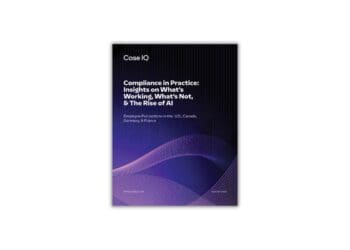Well-meaning ethical platitudes don’t necessarily help employees understand how to be ethical in a given situation. Ask an Ethicist columnist Vera Cherepanova tackles the challenging truth: There isn’t always a “right thing.”
“At my company, we’re constantly told to ‘do the right thing.’ It’s on posters, in training sessions, even on coffee mugs. I understand the intention, but honestly, in real situations, I often find myself wondering: what does that even mean? Sometimes I face choices where there’s no clear answer — like whether to speak up about a colleague’s behavior or push back on a business decision that feels off but isn’t obviously wrong. ‘The right thing’ feels more like a slogan than real guidance. Is there always a single right answer? And if not, how are we supposed to figure out what to do?” — Anonymous
Your question — What does it actually mean to do the right thing? — may sound rhetorical, but it’s one of the most serious challenges in ethics and moral philosophy. The first step in untangling this is to admit something most compliance training never does: In many situations, there may not be a single, clear-cut answer. Ethics isn’t math or accounting. It’s not about plugging values into a formula. In fact, trying to make it that tidy can backfire by encouraging false confidence or performative compliance.
That doesn’t mean anything goes. Rather, it means that ethical reasoning involves judgment. And judgment, by definition, involves uncertainty. Competing obligations — to yourself, to others, to your organization and to something larger — and how to best satisfy them also come into the picture. A moral person doesn’t blindly follow rules; they think carefully about the consequences of their actions, how those actions align with their values and whether they’re treating others with fairness and respect. They ask how their choices reflect who they are or aspire to be.
Morality is partly self-referential. Doing the right thing means wrestling honestly with what morality requires and then moving forward with the best answer you have, knowing you might be wrong. That kind of humility isn’t weakness; it’s maturity.
There is a wonderful book by Derek Sivers called “How to Live: 27 Conflicting Answers and One Weird Question.” The idea is that all 27 chapters disagree with the rest, but each one has a strong perspective that says, “Here’s how to live.” Live for the future. Live only for the present. Live for a legacy. And these are all valid ways of living.
Some people found this book confusing and contradictory, but I think Sivers, being a philosopher, has it right — the point isn’t to land on the answer. It’s to ask better questions.
In ethics, disagreement is instructive. Disagreement forces us to clarify our values, test our assumptions and engage with others. Progress, especially in moral reasoning, often comes from the friction of opposing views; not from certainty but from inquiry. Part of it is helping people reflect on what will contribute to their own well-being.
I recently returned from the Milken Global Conference, where researchers from Harvard presented a study on flourishing, a massive five-year project across 22 countries and 200,000 people. Their findings affirm something philosophers have known since ancient times: virtue, character and moral reflection are central to human well-being. Flourishing, as the researchers define it, includes happiness, health, purpose, virtue and relationships — not just financial security.
So maybe doing the right thing isn’t about having a perfect answer; it’s about building a habit of asking better questions. Is it a good thing and does it make my life better? Is this helping me grow and develop? Is it good for others? Am I flourishing? These are all strong starting points. Wrestling with such questions elevates ethics from a slogan to a practice and brings us closer to a life that exhibits the most flourishing.
Are We at Risk of Automating Ethics Out of Healthcare Decisions?
When profit-driven algorithms make medical decisions, vulnerable populations may suffer disproportionately
Read moreDetailsThe previous question was inspired by the International Business Ethics Case Competition, where students from across the US learn to discuss ethics in business in a practical, realistic and effective fashion. The hypothetical scenario involved an executive who was concerned about their company’s use of AI in healthcare claims processing. The dilemma centered on whether automating denials — while legal and cost-effective — compromised patient care and conflicted with the company’s mission. The question was how to balance innovation with compassion, transparency and ethical oversight.
In my response, I noted: “Automation promises speed, consistency and financial efficiency, but when it comes to healthcare, the increasing role of AI in such decisions comes with significant ethical implications, particularly when profit-driven automation intersects with vulnerable patients’ needs.
“Medical decisions aren’t purely transactional; they directly impact human lives, often profoundly. The tension between efficiency and humanity comes to the forefront.
“Legally compliant actions aren’t always ethically sufficient. Your company may have the right to rely on AI-driven denials, but having the right does not inherently make something the right thing to do. When automated decisions lack transparency, patients, especially vulnerable ones, may suffer disproportionately. The complexity of healthcare demands more than algorithmic accuracy: It requires integrity, compassion and fairness, all of which are often featured as healthcare providers’ corporate values and none of which a purely automated system reliably provides.”
Read the full question and answer here.




 Vera Cherepanova
Vera Cherepanova








